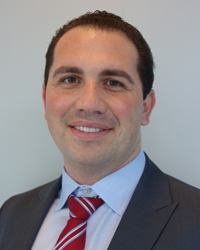Kaiser Permanente research suggests clinical decision support may lead to a more standardized patient experience
A clinical decision support tool developed with predictive analytics could lead to more consistent patient preparation for elective surgery and reduce complications, according to Kaiser Permanente research published Nov. 10 in Annals of Surgery.

Researchers with the Kaiser Permanente Division of Research used sophisticated analytical methods to review medical records and predict which patients would be more likely to have post-surgery complications. The resulting Comorbidity Assessment and Surgical Triage (CAST) score was added to the electronic health record (EHR) used by physicians at Kaiser Permanente Northern California (KPNC).
Surgeons can use CAST to choose what level of pre-operative counseling their patients receive. The study found the CAST score improved the prediction of post-operative complications when compared with surgeons’ or anesthesia teams’ assessments.

“We wanted to develop a method that is very streamlined and automated within the EHR to both assist clinicians and standardize the type of perioperative care assigned to each patient,” said lead author Sidney Le, MD, a Clinical Informatics and Delivery Science research fellow with the Division of Research who is also affiliated with the Department of Surgery at the University of California, San Francisco.
Study co-author Bradley Cohn, MD, an anesthesiologist, intensivist, and chair of Perioperative Medicine for The Permanente Medical Group, said CAST enhances the perioperative medicine process. “We know, from a decade of experience, that perioperative medicine clinicians provide unparalleled value to our patients and the perioperative teams in terms of care coordination and risk reduction,” Cohn said. “CAST allows us to more thoughtfully predict which care pathway will best meet the needs of our patients, helping our teams bring the right patient to the right appointment at the right time to maximize the visit’s benefit.”
What is perioperative medicine
Perioperative medicine (POM) is a growing field focused on multidisciplinary teamwork — meaning specialist physicians and advanced practitioners work together to ensure surgery patients of all types are well prepared for their procedures. The POM team assesses the risk of patients who are undergoing surgery and works together with the surgeon and anesthesiologist to ensure the best outcome.
Kaiser Permanente was an early adopter of perioperative medicine, assigning most elective surgical patients to a perioperative evaluation of some level, from a short phone call to an office visit. “We have an increasingly medically complex surgical population, and our surgical patients may be on unrelated medications,” Le said. “Specialized practitioners in POM collaborate with surgeons to manage these conditions and medications around the time of surgery.”
Surgeons use various triage systems for referring patients to the appropriate level of POM. The triage methods include surgeon assessment of the complexity of a patient’s health status, screening by nurses, patient questionnaires, and the anesthesiology society’s physical status classification system.
Clinical leaders found that the triage to perioperative care varied among KPNC medical centers and might benefit from standardization using data analytics. Le and his colleagues designed a predictive model using large amounts of data from the EHR to predict 30-day post-operative complications. They built it using patient characteristics, comorbidities, laboratory values, and surgical case characteristics.

CAST was added to the EHR in spring 2021, and surgeons have the option of using it or their own judgment on triaging patients to POM.
“Our analysis shows that our model performance increased our capability of predicting the risk of complications,” Le said. CAST is at an early stage of development and will continue to be refined with clinician feedback, Le added. “We wanted to develop a baseline standard approach that we can then improve over time, incorporating the feedback and expertise of our POM teams and clinicians.”
The researchers received funding from The Permanente Medical Group for this study and also for future work to track how well CAST is working and survey clinicians on how to make the POM referral process more efficient.
“We know there is a need to carefully examine the complexities of distinct surgical procedures, not just different patient populations, and use machine learning and artificial intelligence to produce new insights that improve our surgical care,” said senior author Vincent Liu, MD, MS, a research scientist with the Division of Research.
As an integrated health system, KPNC provides a unique opportunity to carry out research and apply it in real time, Le said. “At Kaiser Permanente we have the opportunity to implement these predictive scores into practice, which is extremely rare in the field of informatics,” Le added. “We can observe how it changes practice and hopefully drives efficiency and improvements.”
Co-authors also included Laura C. Myers, MD, MPH, and Patricia Kipnis, PhD, of the Division of Research; and Dalton Corbin, MBA, of The Permanente Medical Group.
# # #
About the Kaiser Permanente Division of Research
The Kaiser Permanente Division of Research conducts, publishes and disseminates epidemiologic and health services research to improve the health and medical care of Kaiser Permanente members and society at large. It seeks to understand the determinants of illness and well-being, and to improve the quality and cost-effectiveness of health care. Currently, DOR’s 600-plus staff is working on more than 450 epidemiological and health services research projects. For more information, visit divisionofresearch.kaiserpermanente.org or follow us @KPDOR.





This Post Has 0 Comments